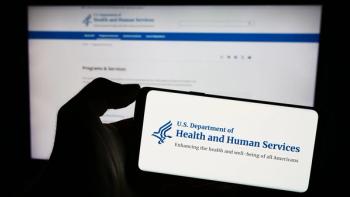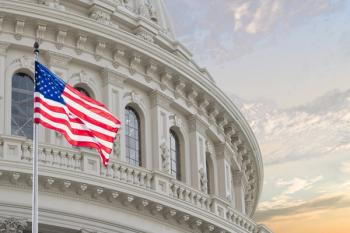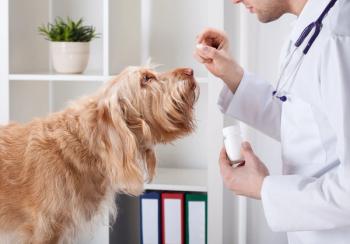
Bill to benefit veterinary-deprived locales
Washington-It's a loan repayment program with a catch.
Washington-It's a loan repayment program with a catch.
Legislators are crafting a bill, "National Veterinary Medical ServiceAct," that, if passed, would create a program within the U.S. Departmentof Agriculture (USDA) to provide loan repayment for a select group of veterinarygraduates - those who agree to work in underserved areas yet unspecifiedby the legislature.
Veterinary students and recent graduates who decide to go to those areaswould be able to apply for loan repayment money that the USDA would obtainthrough appropriations.
"There's been a lot of excitement among veterinary students to havethe opportunity to go to an area where they're really needed," saysApril Demert, policy and program analyst for the American Veterinary MedicalAssociation.
Demert, who is working with legislators on the draft, says, "There'sbeen a reticence among veterinary graduates because they have large loanpayments. What this legislation will do is hopefully open some doors tothem to be able to pay back their loans, while also providing service ina needed area."
Second time a charm?
This is the second go-around for this piece of legislation, which diedin Congress last year. Originally introduced as the Veterinary Health EnhancementAct, the first version involved the Agriculture Committee and Energy andCommerce Committee. Joint committee involvement stalled opportunities fora hearing. As a result, the Ag Committee has taken sole ownership of thisyear's draft.
Rep. Chip Pickering (D-Miss.) is sponsoring the latest drafting in theU.S. House of Representatives. At presstime, lobbyists were still seekinga Senate sponsor.
The legislation, which must be authorized by the Secretary of Agriculture,defines underserved in one of three capacities:
1) Geographic
2) Population areas. Yet unclear is whether population refersto animal or human populations lacking veterinary services, according toDemert.
3) An area of veterinary practice the Secretary of Agriculturedetermines to have a shortage, such as biomedical research.
"The bill, as written, is very broad," says Demert, who addsthat was intentional, forcing the USDA to work with other agencies.
For example, though still undecided, the bill may allow veterinary graduatesto sign a contract with other federal agencies such as the U.S. Departmentof Education to repay loans.
Good timing
With the Farm Bill's passage in 2002, it opens a door to new legislationfor the Agriculture Committee to consider and move more swiftly throughCapitol Hill.
Additionally, leverage from similar loan repayment legislation for nursesand teachers could benefit the veterinary profession. Originally the planwas to fold veterinarians into the repayment program that already existson the human side.
Complicating matters was the definition of underserved areas for humanmedicine versus veterinary medicine.
Newsletter
From exam room tips to practice management insights, get trusted veterinary news delivered straight to your inbox—subscribe to dvm360.




